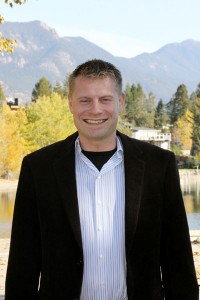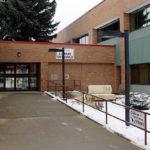Home »

Indemnity bylaw and bad news for smokers
What Happened at Invermere Council This Week?
By Anne Jardine
The regular meeting of the District of Invermere council was held on Monday, April 9 at 7 p.m. in the Municipal Office.
In attendance were: Mayor Gerry Taft and Councillors Greg Anderson, Paul Denchuk and Al Miller.
Staff: Corporate Officer Kindry Luyendyk
Gallery: four people.
INDEMNIFICATION BYLAW 1536, 2018
 After a motion made by Coun. Denchuk and seconded by Coun. Anderson, and a brief explanation that this revised indemnification provision is required under the Local Government Act, council approved all three readings of a bylaw to provide indemnity to municipal officers, employees, and elected officials acting reasonably and in good faith in performing the duties and functions of their positions with the district.
After a motion made by Coun. Denchuk and seconded by Coun. Anderson, and a brief explanation that this revised indemnification provision is required under the Local Government Act, council approved all three readings of a bylaw to provide indemnity to municipal officers, employees, and elected officials acting reasonably and in good faith in performing the duties and functions of their positions with the district.
The bylaw would include providing legal representation, and costs in the event of an action brought against council. It would not admit or assume liability, enter into a settlement, or enter a guilty plea, except with the approval of council. The provision would not cover instances where a court finds the officers, officials, or employees guilty of dishonesty, gross negligence, malicious, or willful misconduct.
This bylaw repeals and replaces a previous bylaw enacted in 1987.
SMOKING REGULATION BYLAW 1537, 2018
AND TICKET INFORMATION UTILIZATION BYLAW 1538, 2018
Coun. Anderson moved, Coun. Miller seconded, and then council voted in favour of a resolution to adopt first readings of these two bylaws.
Council plans to have a public information campaign before this bylaw comes into effect on July 1. The Smoking Regulation Bylaw would prohibit smoking in public places within the district, extending the prohibition from public facilities and buildings to also include parks, playgrounds, school grounds, and trails.
Coun. Anderson explained the purposes of regulation include fire prevention, health protection, and elimination of litter.
Coun. Denchuk commented, “This is long overdue. And it’s also timely with the legalization of marijuana approaching.”
Coun. Miller observed, “We are certainly not the first municipality to do this.”
Denchuk added, “I know at least one town has included outdoor public events such as parades and festivals as well.”
Mayor Taft clarified, “We will begin with a public consultation process, starting with an online survey. It will be interesting to see how the public feedback plays out.”
The Ticket Information and Utilization Bylaw would enable District Bylaw Enforcement Officers to issue information, warnings, and tickets with fines of $250.

Regional District of East Kootenay Five-Year Participation Agreement
Coun. Miller moved and Coun. Anderson seconded a motion to authorize the district and staff to enter into an agreement that would allow the district to be part of the regional planning process that covers the rural areas of the RDEK. This would entail a total cost of $21,456 for the five years.
Mayor Taft said, “We need to take an active role and have a voice in the various regional decisions that may affect us.” The resolution was carried.
Lake Windermere Ambassadors Code of Conduct
Coun. Anderson moved and Coun. Miller seconded a motion to write a letter of support in principle for the Lake Windermere Ambassadors’ winter code of conduct for use of the Whiteway. The motion carried.
Windermere Elementary School PAC Fall Carnival Request
A donation of $250 to assist this project was adopted after being moved by Coun. Denchuk and seconded by Coun. Anderson.
REPORTS FOR INFORMATION – COMPOSTING

Coun. Denchuk stated: “I’ve brought this topic to the district table to help get the conversation underway. The discussion about composting has been going on for at least five years, and over that time, I’ve seen some momentum growing. But it seems the RDEK is not yet ready to take this on, is that correct?”
Mayor Taft responded, “There is some interest because organic wastes in the landfill increase production of methane gas. The RDEK does recognize the value of not putting organics into the landfill; the question is, are they willing to pay for that value. To put it more plainly, composting is one of the priorities of the RDEK, but it is not at the top of the list. We could write a letter to the RDEK asking them to research and cost this. If we can, by composting, divert a thousand cubic metres of material from the landfill, what would that be worth? I think we need to look more closely at this and figure out some of the technical details.”
Denchuk reported, “At the recent CBT Climate Action Meeting, composting was identified as one of the most important initiatives. I would think some of that Climate Action Funding being used to put together a composting plan would be entirely appropriate. It’s exactly what the funding is for. And if the RDEK is not ready for this yet, are we prepared to go it alone as the district?”
Coun. Anderson agreed, “Let’s not put the cart before the horse. We are all in favour of it, but we need more education and the mechanics of it need to be clarified.”
Coun. Miller affirmed, “We all need more education, RDEK, District, and the general public.”
Coun. Anderson suggested, “Staff can inquire of CBT regarding the use of the Climate Action funding towards developing a local composting plan.”
Mayor Taft explained further regional district concerns that may affect the planning process: “They have a new contractor now that will handle the recycling operations – Recycle BC – a province-wide operator. It is just getting started, and it is revamping the system to more effectively sort the different paper, cardboard, glass and plastic recyclables. So they’re busy reorganizing all that right now with a bit of a re-education campaign for the public. When it’s in full swing, it may bring in more revenues to the RDEK, and the district. I’ll report on the progress of this after the next RDEK meeting. And another issue we need to consider is that Invermere has a more detailed curbside collection system; the rural areas do not. Even with the yellow bins, that makes both recycle and garbage collection somewhat more complicated. The rural transfer stations are unsupervised and can sometimes be a bit problematic.”
“I wonder if it means that Invermere is in a better position to take on composting? Something to think about,” Denchuk concluded.
PUBLIC QUESTIONS AND COMMENTS
The public will want more information and action on composting and will pressure RDEK to come up with a plan.
If we do bring in composting, bear awareness will be an important factor.
The wildfire interface with RDEK will be important.
CastleRock community invites the district council and staff to the May 19 FireSmart Event.
Questions regarding streetlight and fire hydrant specifics.
Now that we will not be having the fourteen-story tower, what will be the fate of our old community hall site? Don’t expect an April outcome! This plan will evolve over time in the next few years…
The meeting was adjourned at 8:20 p.m.
e-KNOW







